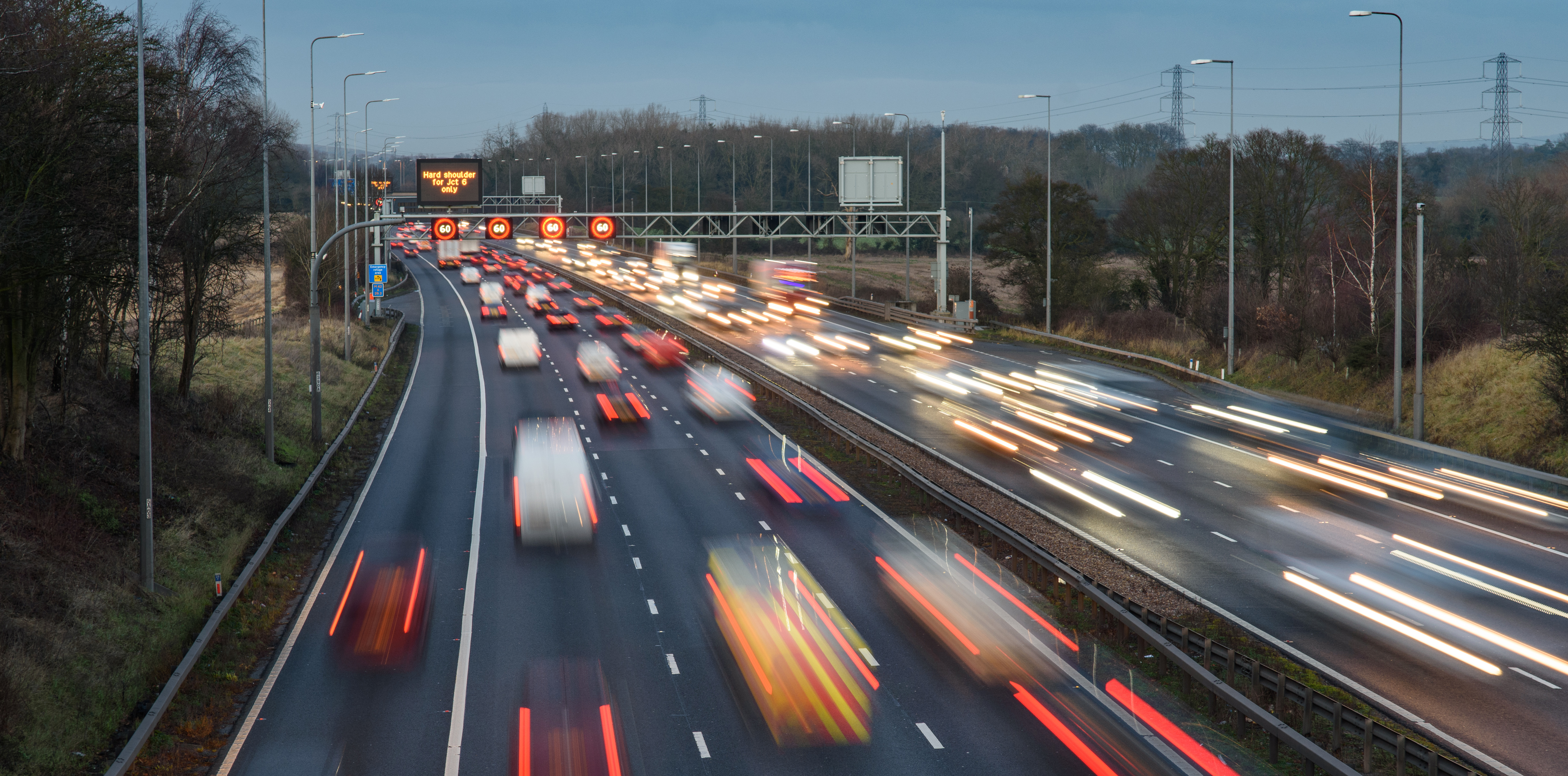No more All Lane Running sections to open without stopped vehicle detection
No new section of All Lane Running (ALR) motorway will be opened unless it has stopped-vehicle detection, the government has announced.
Ministers also say that existing ALR motorways will be retrofitted with the technology to detect stationary vehicles by the end of September 2022, six months earlier than planned.
The news comes as the government publishes the first year progress report on the 18-point action plan which accompanied a stocktake of smart motorways ordered by the transport secretary.
ALR motorways – a type of smart motorway – don’t have hard shoulders. Instead drivers who encounter problems are advised to seek safety in emergency refuge areas, whilst red X signs on overhead gantries can be turned on and off to restrict access to live lanes in the event that a vehicle stops on the carriageway. The speed limit can also be changed.
According to the Department for Transport (DfT) “work to update the Highway Code to provide more guidance about driving on ALR motorways will also be bought forward and is due to be published this year, ahead of schedule.”
Data from the progress report, covering the 5 years from 2015 to 2019 inclusive, shows that ALR motorways are one of the safest types of road in the country.
Using data collected from ALR motorways over five years from 2015 to 2019 inclusive the DfT has calculated that “drivers on a conventional motorway are 33% more likely to be involved in a fatal accident than drivers on an ALR motorway.
“The data also demonstrates that the fatality rate on strategic road network A roads is three and a half times that on ALR motorways.
“The figures have been compiled on a 5-year basis because single-year figures are too low, and fluctuate too much to draw conclusions from. For the year 2019, there were 9 fatalities on ALR motorways, one less than in 2018, and a total of 15 fatalities on motorways without a permanent hard shoulder, 4 more than in 2018.
“The increase in fatalities in 2019 was accounted for by so-called ‘Dynamic Hard Shoulder’ motorways, where the hard shoulder operates only part-time. All these motorways are being withdrawn and replaced with ALR motorways.”
Steve Gooding, director of the RAC Foundation, said:
“We welcome this acceleration in the retrofitting programme. Whilst the casualty numbers suggest smart motorways may, overall, be safer than conventional motorways with a hard shoulder that doesn’t mean they can’t be safer still.
“Ministers acknowledge a gap remains between what the data suggests about the safety of smart motorways and what many drivers believe to be the case: the numbers mean nothing if it’s your car that breaks down and you can’t reach an emergency refuge.
“The challenge for Highways England is not just doing the upgrade work but communicating to road users that all lane running requires a different mindset from drivers – only then will they start to turn public opinion around.”
During the past 12 months Highways England has:
- installed 10 more emergency areas on the M25 around London
- continued to upgrade cameras so they can automatically detect red X violations
- introduced radar-based stopped vehicle detection technology on stretches of the M3 and the M20, with work underway on the M1
In March 2021, the Transport Secretary announced that the Office of Rail and Road (ORR) is carrying out an independent review of the casualty and safety data “to provide further analytical assurance and ensure that the conclusions arrived at are robust.”
ENDS
Contact:
Philip Gomm – Head of External Communications – RAC Foundation
[email protected] | 07711 776448 | 020 7747 3445 | 020 7389 0601 (ISDN)
Notes to editors:
The RAC Foundation is a transport policy and research organisation that explores the economic, mobility, safety and environmental issues relating to roads and their users.
The Foundation publishes independent and authoritative research with which it promotes informed debate and advocates policy in the interest of the responsible motorist. All the Foundation’s work is available at: www.racfoundation.org


